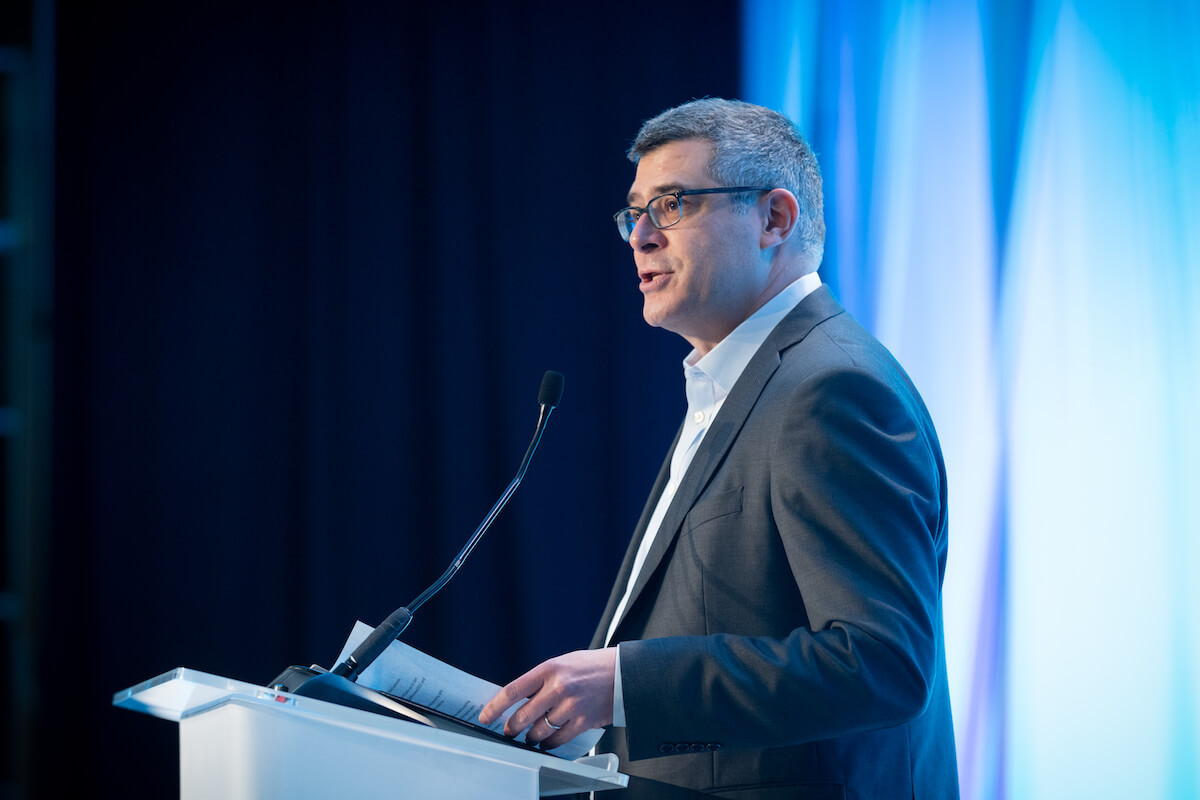Greetings, Agents of Impact!
Featured: Impact Voices
Incentives for driving impact in deal and fund structures. To get a different outcome, change the rules of the game. Many impact investing funds and deals replicate the traditional financial incentives of debt and equity, writes Aunnie Patton Power of Intelligent Impact. “For impact investing to ‘mainstream,’ there needs to be greater clarity around how impact achievements are being incentivized.” In a third guest post on ImpactAlpha on how to redesign impact financing to work for funders, founders and communities, Power gathers up examples and innovations in the rapidly expanding market for impact-linked finance. Designing incentives when greater impact aligns with improved financial performance is relatively easy. But there are mechanisms that entrepreneurs and investors can use to concentrate a fund manager’s or enterprise’s attention when choices must be made.
For example, off-grid energy companies in Africa tend to move upmarket and focus less on the poor as they grow. To the extent impact investors and government are subsidizing ‘impact,’ they’ll need to counterbalance pure profit-seeking pressures and structure incentives that focus on harder-to serve customers. Impact incentives can be baked into deals through the release of tranches of capital, the vesting of ownership shares or the buyback of equity from investors by founders and employers. Limited partners can insist impact fund managers link their carry, or share of the funds returns, to impact achievements in what is known as an impact carry (Media Development Investment Fund). The Global Innovation Fund agrees to margin stepdowns, or reductions in return based on impact achievements. When impact goes south? In some cases, Global Innovation Fund has the option of forcing a facilitated exit if a portfolio company consistently fails to meet impact milestones. When a government or philanthropic payor is willing to simply pay for the tradeoff, outcomes linked loans, such as social impact incentives can lower the cost of capital for high-impact enterprises (Swiss Agency for Development and Cooperation) One takeaway: Better data is key to both incentive design and adoption.
Keep reading, “Incentives for driving impact in deal and fund structures,” by Aunnie Patton Power on ImpactAlpha.
- Reread Power’s other posts on ‘redesigning venture finance’ and ‘committing to communities.’
Dealflow: Follow the Money
Beyond Leather closes €1.1 million for apple-based “leather.” Tens of thousands of tons of apple pulp, cores and seeds are thrown away each year in the E.U. after the fruit is pressed for juice and cider. Copenhagen-based Beyond Leather Materials buys the pulp, blends it with sustainably-sourced rubber, and “cures” it into a leather-like material. The whole process takes a day, compared to six-weeks or more for traditional animal-based leather. It plans to launch its material into the $30 billion annual synthetic leather industry later this year. The startup raised seed financing from Jensengroup Investment Fund, Rockstart and Vækstfonden to ramp up production.
- Sustainable leather. Most synthetic, or “vegan,” leather products are plastic-based, Beyond Leather’s Mikael Eydt told ImpactAlpha (think Naugahyde). Beyond Leather uses a recycled plastic-based coating; the company is working to make its products fully plastic-free. Another possible base: carrots.
- Beyond meat. Beyond Leather is part of the growing cohort of ventures developing “animal free” products beyond alternative foods. New York-based Modern Meadow makes lab-grown leather. San Francisco-based MycoWorks makes mushroom-based leather.
- Check it out.
AfricInvest raises $202 million for pan-African private equity fund. CDC Group and Finnfund anchored AfricInvest Fund IV with $50 million and $20 commitments, respectively. AfricInvest, with offices in Abidjan, Cairo, Casablanca, Lagos, Nairobi and Tunis, will invest in African enterprises in financial services, agribusiness, logistics, manufacturing, healthcare and education.
Developing World Markets closes $90 million for debt financing in frontier markets. Anchoring the fund are three Nordic institutional investors: Skandia Mutual Life Insurance Company, Kåpan Pensioners and Nordea Life & Pensions. The fund will provide local currency debt financing to “inclusive” financial institutions and directly to micro, small and medium enterprises providing U.N. Sustainable Development Goal-aligned products or services.
Signals: Ahead of the Curve
New poster child for stranded assets: Dakota Access Pipeline. A federal judge ordered a shutdown within 30 days of the Dakota Access Pipeline, saying the Army Corps of Engineers failed to provide a full environmental impact statement. The pipeline, opposed by the Standing Rock Sioux Tribe and a broad coalition of activists, had become an economic millstone as the price and production of North Dakota shale oil has cratered. Another pipeline casualty: The Atlantic Coast Pipeline was canceled on Sunday. That pipeline would have cut under the Appalachian Trail and generated 67 million tons of climate pollution each year. Developers Dominion Energy and Duke Energy blamed legal uncertainty and ballooning costs, just weeks after the U.S. Supreme Court allowed the pipeline to proceed. The Appalachian shale region is one of the biggest losers in the global oil and gas glut. “Building more gas infrastructure now without a clear justification is a recipe for stranded assets,” said Lila Holzman of As You Sow.
- Write-off watch. The Atlantic Coast Pipeline’s demise reflects the energy industry’s changing capital- expenditure mix. Duke is writing off its more than $2 billion investment to date and instead is investing in renewables, battery storage, energy efficiency and grid projects as part of a $56 billion capital investment plan. Dominion is exiting the transmission business with the sale of its natural gas pipeline and storage assets to Warren Buffet’s Berkshire Hathaway. “Any investor thinking of putting cash into fossil fuel infrastructure projects should be warned they’re tossing their money away,” tweeted 350.org’s Bill McKibben.
- Financial fallout. The ruling on the Dakota Access Pipeline, which is certain to be appealed, is the latest twist in a long-running battle over the 1,172 mile DAPL, which runs under the Missouri River adjacent to tribal lands. Banks, including Wells Fargo, JPMorgan Chase and Bank of America, have financed more than two-thirds of the project. Even after the shutdown, pipeline owners Dakota Access LLC and Energy Transfer are on the hook for payments from last year’s $2.5 billion bond.
- More.
Agents of Impact: Follow the Talent
Hiro Mizuno, ex- of Japan’s Government Pension Investment Fund, joins Danone’s independent mission committee… La June Montgomery Tabron of the W.K. Kellogg Foundation has been awarded the University of Oxford’s ‘Bynum Tudor’ Fellowship at Kellogg College… ICA Fund Good Jobs is recruiting a managing director of investments in Oakland… The Wildlife Conservation Society is hiring an executive director of conservation technology in New York… Ceres has openings for a vice president, programs, and for managers of its food and forests, oil and gas, and water programs in Boston… Impact investing platform Yova seeks a head of investing in Berlin… EarthShare is looking for a vice president of impact near Washington, D.C., Los Angeles, San Francisco, New York City, or Chicago… The Elmina B. Sewall Foundation seeks a finance and community investment partner in Freeport, Maine.
The Beeck Center is hosting “Ideas That Transform: A national bank to restart local economies,” with Kauffman Foundation’s Agnes Dasewicz, Dale Mathias, previously with Columbia Business School, and 1863 Ventures’s Melissa Bradley, July 14… Luminate is calling for proposals to help the firm examine the impact of COVID-19 on strategy and operations.
– July 7, 2020











